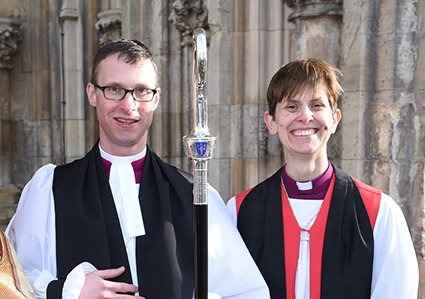Two-thirds of women experience sexism in church
Two-thirds of women say they have experienced sexism in church, according to a new survey to coincide with international women's day.
'Institutional sexism' was also cited as the main barrier to women in church leadership in the UK, according to respondents to a survey by the Sophia Network, a charity promoting female leadership in the church.

The Minding the Gap report, published in the House of Lords today, suggested 53 per cent women said embedded sexism in the church had blocked their progress. Other factors were a lack of female mentoring and leaders, according to 46 per cent of women, and a lack of theological understanding of women and men working together, according to 42 per cent.
Rev Vicky Thompson, chair of the Sophia Network, urged churches to adopt a 'Minding the Gap Manifesto' that included pledges to 'call out everyday sexism in our church wherever it takes place', to 'strive for fair representation of both men and women preaching God's word' and to 'work hard to ensure that no woman in our congregation feels "less than" just because she is a woman'.
Dr Claire Rush, vice president of Girls' Brigade International and vice-chair of the Sophia Network, said: 'The #metoo campaign shows that gender equality has still not been achieved, and it's heartbreaking to see that the Church, which should be a liberating and hope-filled community, remains a place in which some women are experiencing sexism.'
The research was in response to answers from a self-selecting group of 1,211 people who responded to an online survey. Of the respondents 95 per cent were white, 91 per cent lived in England and just under half were Anglican.
Sophia Network chair Vicky Walker said: 'Although we were disappointed that so many women have experienced sexism, we were heartened to see some positive results about women's experiences of church – particularly the support they have received in their leadership journeys from male leaders.
'We hope this research will provide a useful tool to pave a way forward towards the full equality of men and women in the Church for the sake of the gospel. We are hoping the findings will also shape the future direction of Sophia.'











